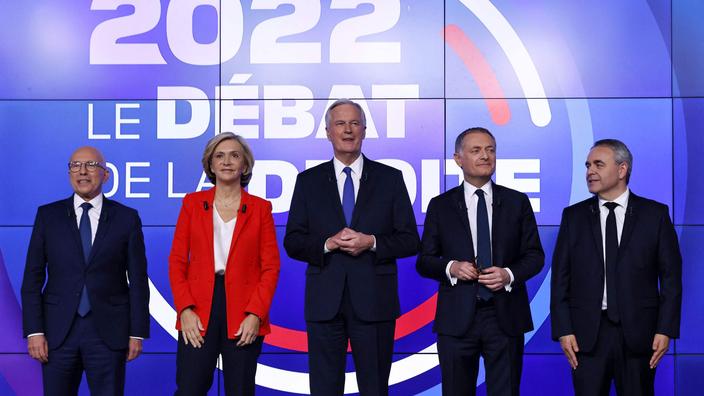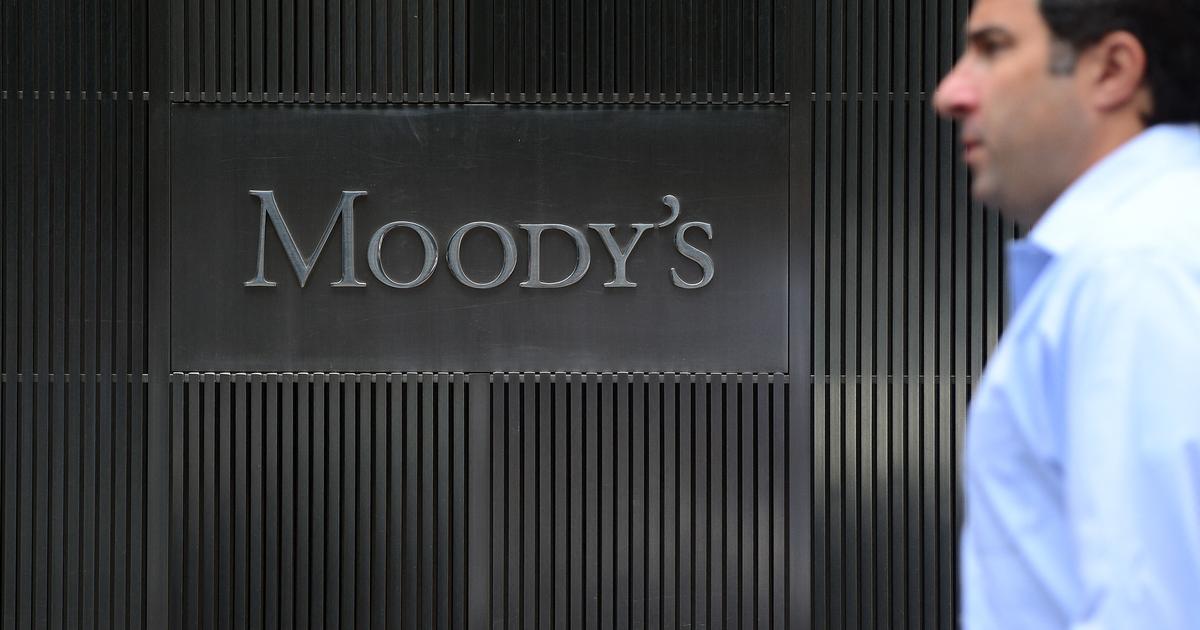Sébastien Laye is an entrepreneur and associate researcher at the Thomas More Institute.
A presidential election,
a fortiori
a primary (with the exception of less acrimony between competitors, it is clear that this Congress is now experienced as a mini-primary), necessarily leads to a litany of measures. This Lépine competition for good reform is healthy, it is part of our history and the right is right to find the path to credibility, in the face of illusionists who have claimed or still claim that the program was useless.
Of course, in good political strategy, if we reread Gustave Lebon, to stir up the crowds and win, we do not need detailed and technocratic measures, but a vision: but to govern behind and succeed, we must 'be prepared.
LR is also the heir of Rueff and Pinay.
Some stressed after the second debate that the candidates had launched into the bidding process in terms of tax promises and spending.
This argument deserves to be studied.
The “whatever the cost” of the government makes any LR candidate look like an apostle of budgetary rigor, as long as he is simply realistic and pragmatic.
Sebastien Laye
First of all, the presidential election takes place in a particular context where the macroeconomic framework has been disrupted: during the Covid crisis, the usual precepts of budgetary austerity, of which the European Union was the thurifer, were thrown away in favor of a revival of Keynesian thought: faced with the closure of economies, it was up to the States to make up for the collapse in demand.
Some economic theories like MMT recommend continuing this effort beyond the very Covid crisis. The current French power, statist in its essence, seized it by operating a complete about-face vis-a-vis its vague initial economic doctrine. On the eve of the presidential election, Emmanuel Macron distributes the checks and if a deficit of nearly 10% of GDP in 2020 during the economic collapse (-8.3% of GDP) was justified, the year 2021 will see a deficit of 8% even though growth could exceed 6.5%! It gets worse, since in the current trajectory of public finances, the recent PLF forecasts a 4.8% deficit in 2022 with a growth of 4%. The “whatever the cost” of the government makes any LR candidate look like an apostle of budgetary rigor, as long asit is simply realistic and pragmatic. It is therefore not clear in the name of what we could blame LR for lack of credibility, especially since the other programs boil down to slogans and without any serious costing.
To read also "The least improbable scenario for LR would be to see its leaders participate tomorrow in a majority around Emmanuel Macron"
Let us now come back to the candidates' proposals.
First of all, there is a large package of sovereign measures for everyone: they often concern changes in the law (no budgetary impact) but sometimes include more resources for the police or the construction of prisons.
No candidate here has planned to rely on taxation or more deficit, but all foresee a redeployment of the missions of the State, with fewer posts in the "administering" administration and more royal operational staff in the field. .
We know that at the hospital, our administrative staff ratio is 33% compared to 24% in Germany. We find the same ratios in most public sub-sectors, and there is a reservoir there for redeploying the wage bill towards the expectations of our fellow citizens; However, should we announce a reduction in the number of civil servants like Valérie Pécresse? This approach has systematically failed, especially under Macron; as in business, it is necessary to redefine the missions of the State, what the civil service statute is and who should benefit from it, and then allocate the needs to the missions. It also requires having public officials who are under contract or under the statute of the public service, according to their mission. A private law contract for new entrants,outside sovereign functions, should be the norm, and a rise in wages for those renouncing the statute.
Emmanuel Macron or Eric Zemmour do not have half of the economic vision of all these candidates.
Sebastien Laye
Xavier Bertrand has two major flagship measures for our economy: the premium on wages and the reduction in production taxes. The first, which is equivalent to a massive drop in costs between 1,500 and 2,000 euros, is not so expensive because it relies on the existing activity bonus to make it finally efficient and useful: the 5 billion to be found, in within the framework of a healthier management of the public service, are achievable (is a direct reduction in costs outside this system much more expensive…); As for the halving of production taxes, a recent study by the Molinari Institute, by Pierre Bentata and Nicolas Marques, shows that it is self-financing by improving employment, production, and new revenue generated.This point is well known to economists and should guide any program evaluation: it is called the
dynamic scoring
, namely econometric techniques which make it possible to consider changes in behavior and government revenue following tax changes.
Most of the candidates are also showing courage on the issue of pensions, and it should be remembered that in a full year of the reform, one year of lowering the retirement age is 10 billion euros d savings per year, so all candidates save between 15 and 25 billion per year on this question ...
To read also Christine Clerc: "What figure are the LR activists looking to represent them?"
Éric Ciotti curiously displays a whole new liberalism with a flat tax at 15% and an abolition of gift taxes, but he does not specify if all taxes are concerned (does he want to put an end to the progressivity of income tax? ?) and above all does not detail the necessary savings (at least 100 billion per year according to our previous work on the subject): it relies solely on the provision of end of tax loopholes. We have already worked on the subject, and at most, an intelligent simplification would bring back 30 billion to be able to lower the IR as much. Ciotti's program appears to be that of an unrealistic challenger with no real chance of victory.
Michel Barnier - who carries a fairly classic and serious right-wing program - and Xavier Bertrand indirectly propose to leave the 35 hours, and to simplify the allowances. On the environment, all the candidates are realists, and with their desire to relaunch nuclear power, they should all succeed in reducing the energy transition bill for the public authorities.
We will also note that all these programs, without being perfectly budgeted, are more so than the first LR project (that of the Party) and especially more than the programs of the competitors. In a political universe where the outgoing power relies on simple adages such as "whatever the cost", LR still embodies - for how long - economic credibility: at least in the general vision, because it is is in fact at the level of execution that citizens do not yet bring their full confidence in these candidates. No one has yet explained to them with whom and how LR would govern, while no one is convinced in France that the internal resources of the Party will be sufficient to restore the country. While Emmanuel Macron or Eric Zemmour do not have half of the economic vision of all these candidates,they can draw on the pool of civil society to carry out their project. The moment of truth - and of choices - for LR on this subject will ring after Congress.









